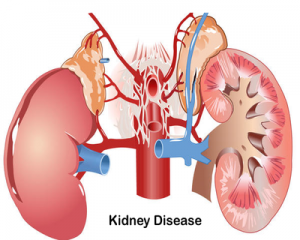- Home
- Editorial
- News
- Practice Guidelines
- Anesthesiology Guidelines
- Cancer Guidelines
- Cardiac Sciences Guidelines
- Critical Care Guidelines
- Dentistry Guidelines
- Dermatology Guidelines
- Diabetes and Endo Guidelines
- Diagnostics Guidelines
- ENT Guidelines
- Featured Practice Guidelines
- Gastroenterology Guidelines
- Geriatrics Guidelines
- Medicine Guidelines
- Nephrology Guidelines
- Neurosciences Guidelines
- Obs and Gynae Guidelines
- Ophthalmology Guidelines
- Orthopaedics Guidelines
- Paediatrics Guidelines
- Psychiatry Guidelines
- Pulmonology Guidelines
- Radiology Guidelines
- Surgery Guidelines
- Urology Guidelines
Tolvaptan delays kidney failure in polycystic kidney disease

Long-term efficacy of tolvaptan used to treat patients with autosomal dominant polycystic kidney disease (ADPKD), a common cause of kidney failure showed a slower rate of kidney function decline compared with historical controls, according to the findings of a study recently published in the Clinical Journal of the American Society of Nephrology (CJASN).
ADPKD is the fourth leading cause of end-stage kidney disease which is triggered by the hormone vasopressin. Two similar trials; the three-year TEMPO 3:4 and in the one-year REPRISE phase 3 clinical trials, showed that tolvaptan (a vasopressin receptor antagonist) slowed the decline of kidney function in patients with ADPKD at early and later stages of chronic kidney disease, respectively. The results suggest that tolvaptan might delay the need for dialysis or kidney transplantation, provided that its effect on kidney function decline is sustained and cumulative over time, beyond the relatively short duration of TEMPO 3:4 and REPRISE.
Read Also: New autoimmune disease that leads to kidney failure identified
Vicente Torres, MD, Ph.D. (Mayo Clinic) and his associates retrospectively analyzed information on 97 ADPKD patients treated with tolvaptan for up to 11 years at the Mayo Clinic. Kidney function was measured as estimated glomerular filtration rate (eGFR).
Key findings:
- Patients treated with tolvaptan had lower eGFR slopes compared with controls (-1.97 vs -3.50 ml/min per 1.73 m2 per year) and a lower risk of a 33% reduction in eGFR from baseline.
- Also, the annualized eGFR slopes of patients treated with tolvaptan did not change with the duration of follow-up.
- The investigators also compared the eGFR values observed at the last follow-up in the tolvaptan-treated patients to the anticipated last follow-up eGFR values, estimated using a previously validated predictive equation. Differences between observed and predicted eGFRs at last follow-up increased with duration of treatment, suggesting that the beneficial effect of tolvaptan on the eGFR accumulates over time.
"The results of the study suggest that the effect of tolvaptan on eGFR in patients with ADPKD is sustained, cumulative, and consistent with potentially delaying the need of kidney replacement," said Dr. Torres.
The study concluded that follow-up for up to 11.2 years (average 4.6 years) showed a sustained reduction in the annual rate of eGFR decline in patients treated with tolvaptan compared with controls and an increasing separation of eGFR values over time between the two groups.

Disclaimer: This site is primarily intended for healthcare professionals. Any content/information on this website does not replace the advice of medical and/or health professionals and should not be construed as medical/diagnostic advice/endorsement or prescription. Use of this site is subject to our terms of use, privacy policy, advertisement policy. © 2020 Minerva Medical Treatment Pvt Ltd